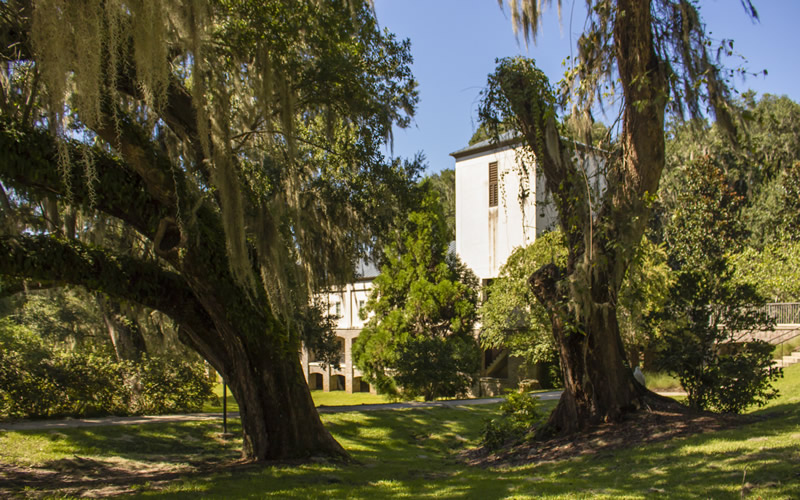 NEWS: Major reforms underway for state social services agency
NEWS: Major reforms underway for state social services agency
BRIEFS: More kids to get health insurance under House plan
COMMENTARY, Brack: Time for a third party to rise?
SPOTLIGHT: Municipal Association of South Carolina
MY TURN, Loftis: Prepare to be lucky on St. Patrick’s Day
FEEDBACK: Send us your thoughts
MYSTERY PHOTO: Bucolic setting
S.C. ENCYCLOPEDIA: Fossils in South Carolina
NEWS: Major reforms underway for state social services agency

By Lindsay Street, Statehouse correspondent | The state’s often-maligned social services agency could undergo massive changes this year as lawmakers seek to reform it at the same time the governor continues a search for a new leader.
A lawsuit prompted by child deaths in 2014 in the state forced incremental change at Department of Social Services (DSS), but much more is needed to correct lingering problems, according to the agency and a federal court.
![]() As lawmakers are setting the stage for additional legislative oversight and the governor’s office concludes interviewing candidates, the House voted this week to refuse funds that the agency said it needs to comply with a 2016 court order. The state Senate may reverse course on that funding, but legislative audits loom as lawmakers push for overdue DSS reform and accountability.
As lawmakers are setting the stage for additional legislative oversight and the governor’s office concludes interviewing candidates, the House voted this week to refuse funds that the agency said it needs to comply with a 2016 court order. The state Senate may reverse course on that funding, but legislative audits loom as lawmakers push for overdue DSS reform and accountability.
“We need to make some changes at DSS. Whatever we’re doing hasn’t been working,” Lexington Republican Sen. Katrina Shealy told Statehouse Report. Shealy has long led efforts in Columbia to reform the agency.
Agency came into public focus after 2014 deaths
Several children died in DSS care in 2014. Two years later, a federal court ruled the agency needed to hire more child welfare caseworkers, improve health care for children under its care and move more children into foster care. For the next two years, then-DSS Director Susan Alford worked to alleviate issues at the beleaguered agency. While she earned praise for her work, court monitors said the agency was slow in enacting needed changes.
When Alford retired in July 2018, the agency continued making progress, although admittedly slow, according to the acting director.
“DSS remains committed to comprehensive child-welfare reform, and we are proud of our progress in several important areas,” Acting State Director Joan B. Meacham wrote lawmakers Feb. 20. DSS was reached for comment, but did not return the request to talk to Meacham prior to publication.
In the letter, Meacham implored lawmakers to fund the agency’s requests so it could comply with the federal court order and not incur further litigation.
“The court recently made clear that it will not wait on future budget requests to support implementation of what it considers the most pressing priorities from the plans,” Meacham wrote. “Much work remains to be done.”
She asked lawmakers include two key critical components in the agency’s budget: $33.6 million to raise caseworker salaries and $1.9 million to raise foster care board rates.
In late 2018, the judge overseeing that case, U.S. District Judge Richard Gergel, urged the agency to work with lawmakers to increase its number of caseworkers. While the governor’s proposed executive budget funded the request, the House’s budget, which was passed this week, did not .
A deeper dive into finances
House budget writers allotted $195 million toward the cabinet agency, which also receives $508M from federal funding. But they balked at sending additional money toward DSS — a sum that totaled $44.6 million.

S.C. Rep. Bill Herbkersman, the Beaufort Republican who spearheaded the drafting of the House’s DSS budget, said the move to balk at more funding was due to the agency’s questionable handling of state funds.
“We do not feel confident that the agency is capable of handling more funding at this point and time,” he told lawmakers in a February meeting. He cited $38 million in additional funding over the last two years that has led to “no progress” in caseloads and placement, and $14 million in additional funding in 2015 that gave new employees a raise and had “an adverse effect on staff morale.”
“It was not about the amount of money requested, it was about the lack of efficient use of the money that the agency received,” he told Statehouse Report this week.
For two weeks beginning March 19, subcommittees of the Senate Finance Committee will work through agency requests, like that of DSS. Shealy said the Senate will likely move to fund some of DSS’s request, even while putting its finances under the microscope.
‘Intensive reform process’
Shealy will chair the Senate Select Oversight Committee on DSS Class Action Suit. In a March 4 memorandum calling for the committee, Senate President Harvey Peeler, R-Cherokee, said he has concerns about the agency’s spending.
“I charge this select committee with delving into the programmatic and financial areas of the agency. Schedule hearings, take testimony, require the agency to produce documents. Work as long and dig as deep as you feel necessary,” Peeler wrote.

Shealy said Monday: “It isn’t going to be a short meeting.”
The first meeting of the committee has not been scheduled yet. Shealy previously served on Senate committee scrutinizing DSS immediately following the child deaths in 2014. The meetings pre-dated the court-ordered reforms but uncovered many of the issues addressed later in the lawsuit. Now, senators want to see how DSS is complying with the court orders and how it is spending money to achieve its goals.
Meanwhile, Herbkersman championed a budget proviso that creates a gubernatorial-appointed joint study committee with a similar mission.
“I have grave concerns about DSS,” he said. “(A study committee) is long overdue.”
He said the goal will be to bring the sprawling agency back to “core functions” and make it “more accountable.” He said the committee members will explore putting food stamps under the Department of Health and Human Services (the state’s Medicaid agency) and possibly move elderly and vulnerable adult services to the Office on Aging.
“This should have happened a few years ago,” he said. “It’s a mammoth task but it couldn’t get any worse.”
Herbkersman said he was hopeful reform could begin by next year.
Director search underway
Shealy called the direction of DSS “very concerning.”
“We have got to get someone in there,” Shealy said this week. “Let’s get a director, someone very qualified.”
She said that concern wasn’t a referendum on Meacham, adding that it’s difficult to enact meaningful change as an interim.

Shealy said McMaster is currently interviewing 15 candidates for the post. McMaster spokesman Brian Symmes confirmed that McMaster was interviewing candidates this week.
“We expect to be making an announcement of the governor’s decision shortly,” Symmes said. However, he did not give any estimate as to what that timeline may be. He added the governor was “at tail end of the process.”
Symmes said the governor was looking for “someone with experience in that realm and someone who he is confident will be able to run a large agency with so many different missions and so many employees.”
Children’s Trust of South Carolina CEO Sue Williams said in a statement to Statehouse Report that a new director is a vital piece of the puzzle for reforming the agency.
“DSS is a critical piece of the protective safety net for vulnerable children. Finding the next agency director who can lead that organization to deliver on its obligations is a task state leaders are approaching with thoughtful and careful consideration,” she wrote. “Our hope is that the next director will embrace prevention so that more children and families remain out of the system and reduce the workload for the overburdened department.”
Any gubernatorial appointment will need Senate confirmation.
- Have a comment? Send to: feedback@statehousereport.com
NEWS BRIEFS
More kids to get health insurance under House plan

By Lindsay Street, Statehouse correspondent | About 20,000 more children in South Carolina will be able to qualify for a government insurance program should a proposal in the House’s budget go forward.
On Wednesday, representatives voted 100-2 to pass the state’s $9.3 billion spending plan for state tax revenues for 2019-2020..

S.C. Rep. Bill Herbkersman, R-Beaufort, ironed out details in the budget-writing subcommittee to dole out an additional $23 million to get more uninsured children in the state coverage. The state and federal Children’s Health Insurance Program covers children not covered by Medicaid.
The move was hailed by children’s advocacy group Children’s Trust of South Carolina.
“Expanding CHIP will give more children in South Carolina access to health care including critical early screenings that can help families identify and seek immediate help for any physical and developmental delays. When children get the help they need early in life, it prevents more costly interventions later. This is a prevention strategy that will save money in the long run,” Chief Communications Officer Bett Farrell Williams wrote in a statement to Statehouse Report.
Currently, CHIP in South Carolina limits eligibility to those at 208 percent of the federal poverty level or below. For example, a family of four would have to earn less than $53,560.
“It will enable more South Carolina children to have access to health coverage than ever before,” Herbkersman said. In a Feb. 20 meeting, he said South Carolina has one of the lowest eligibility limits in the nation. He said the House proposal would bring the state in-line with the rest of the Southeast.
“Kids who get good health checkups do better in school,” he told Statehouse Report.
While the budget debate at one point lasted 13 hours, the CHIP proposal was never brought up and remained. It will be up to the Senate and conference to keep the proposal as the budget inches its way to the governor’s desk.
Here are some other highlights from the House budget:
- $35 million of the $61 million coming to state coffers from the $1.5 billion lottery ticket is slated for taxpayer rebates — $50 for each taxpayer;
- State employees will see a 2 percent raise ($41 million from recurring revenues); and,
- Minimum pay for new teachers will increase to $35,000 and current teachers can receive a minimum of a 4 percent raise ($159 million recurring).
The two dissenting votes on the budget came from Upstate Republicans Jonathon D. Hill and Josiah Magnuson. The two pushed for an amendment effectively banning abortion in the state, and removing all state dollars to abortion-providing clinics for non-abortion services.
Senate Finance subcommittees begin meeting March 19 to address agency requests.
In other news:
![]() Santee Cooper sale still up in air. Senators are signaling they are skeptical about selling the public utility Santee Cooper. The investigation into a possible sale of the utility came after a failed nuclear expansion project that blew $9 billion into unfinished reactors, money that was shouldered by debt by Santee Cooper and by raising rates for South Carolina Electric & Gas customers. Read more.
Santee Cooper sale still up in air. Senators are signaling they are skeptical about selling the public utility Santee Cooper. The investigation into a possible sale of the utility came after a failed nuclear expansion project that blew $9 billion into unfinished reactors, money that was shouldered by debt by Santee Cooper and by raising rates for South Carolina Electric & Gas customers. Read more.
State crime labs reportedly struggling. State Law Enforcement Division DNA analyst Jennifer Clayton emailed lawmakers this week and said there is a backlog of cases forcing the division to rush jobs. She asked for more money to add analysts to the staff there. Clayton wrote the email as a “worn-out” employee and “concerned citizen.” Read more.
Kinship care day scheduled. The second annual Kinship Care Day is scheduled for 10:45 a.m. March 19 at the Statehouse grounds. The day is to call attention to and salute caregivers and supporters in the state. The program will highlight updates on current legislation like S.191 and include state lawmakers, DSS officials, local kinship care supporters and kinship caregivers.
Weekly update on Palmetto Priorities
 Throughout the legislative session, we’ll provide you relevant updates related to our list of Palmetto Priorities, which are 10 big policy areas where major progress is needed for South Carolina to escape the bottom of lots of lists. Over the last week:
Throughout the legislative session, we’ll provide you relevant updates related to our list of Palmetto Priorities, which are 10 big policy areas where major progress is needed for South Carolina to escape the bottom of lots of lists. Over the last week:
ENVIRONMENT: Drinking water in S.C. called into question. A major investigative piece by The State shows that more than 90,000 residents have been exposed to dangerous drinking water in more than 200 small water systems in the state. Read the series here.
HEALTH CARE: Medical marijuana panel meets. The Senate Medical Affairs subcommittee addressing S. 366, the “S.C. Compassionate Care Act,” will meet 9:30 a.m. March 20 in room 207 of the Gressette Room. Read the agenda here.
POLITICS: ‘Cooling off’ period introduced for lawmakers. Democratic Sens. Thomas McElveen of Sumter and Dick Harpootlian of Columbia have introduced a bill that would mandate a period of time before former legislators could take certain state jobs. Read more.
PRISONS: Minimum bail amount floated in Senate. Sen. Sandy Senn, R-Charleston, has introduced legislation backed by the 9th Circuit Solicitor Scarlett Wilson that aims at raising the minimum bail amount for repeat offenders. Read more.
Looking ahead
Alliance Party organizing March 23. The party formerly known as the American Party of South Carolina — which has not merged into the new Alliance Party — is holding an organizational meeting 1 p.m. to 5 p.m. March 23 at the Columbia Conference Center. The group says it holds core values of common ground, term limits, campaign finance reform, and “public service-motivated” candidates. More info.
Click below for other items coming up in the Statehouse:
- House calendar
- Senate calendar
- Have a comment? Send to: feedback@statehousereport.com
BRACK: Time for a third party to rise?

By Andy Brack, editor and publisher | America seems so politically messed-up these days that maybe it’s time to try something really different. Is it time finally for third political parties to flourish?
The guy who was supposed to “drain the swamp” made it more infested than ever as corruption investigations and indictments across agencies seem to sprout daily. Meanwhile, members of Congress are more like eternally-out-of-touch hamsters on spinning wheels than distinguished legislators trying to fix real problems of everyday Americans.
The divide in America is real, voiced over and over on a month-long fall trip across the country just before the 2018 election. Americans also want unity, but with dividers and hamsters in control, there’s little feeling that change to a more civilized politics that performs will come along.
 Polls reflect all of this dysfunction. A February NBC News/Wall Street Journal poll of 900 Americans showed 38 percent of respondents believed “the two-party system is seriously broken, and the country needs a third party.” Another 47 percent said the two-party system had real problems, but it could work. Only 11 percent thought the two-party system worked fairly well.
Polls reflect all of this dysfunction. A February NBC News/Wall Street Journal poll of 900 Americans showed 38 percent of respondents believed “the two-party system is seriously broken, and the country needs a third party.” Another 47 percent said the two-party system had real problems, but it could work. Only 11 percent thought the two-party system worked fairly well.
An October 2018 Gallup Poll was a starker snapshot, showing 57 percent of Americans believed there was a need for a third major political party, while 38 percent thought the current two-party system was adequate.
“Independents are, now surprisingly, the political partisan group most supportive of a third party,” according to a Gallup analysis. “Seventy-two percent of political independents support a third major party. … Both Democrats and Republicans typically have similar levels of support for a third major political party. However, this year, there is a substantial 16-percentage point gap … with 54 percent of Democrats and 38 percent of Republicans supporting a third major political party.”
Former Democratic S.C. Superintendent of Schools Jim Rex was a founder of the American Party of South Carolina a few years back. Earlier this month, it and other third parties merged into what they hope becomes a centrist national third party called the Alliance Party.
Rex, currently a national vice-chair of the Alliance Party, believes now is the time for a real third party.

“The majority of Americans are explicit in their belief that neither of the two dominant parties represent their views and/or are effectively addressing their needs,” Rex said this week. “Poll after poll has shown that the numbers of self-identified Republicans and Democrats are steadily decreasing, while the numbers of independents and non-affiliated [voters] are dramatically increasing-to the point that they now outnumber either of the two parties.
“This ‘new majority’ is mostly in the broad center and are not ideologues. They are tired of career politicians, gridlock and divisive politics. They are looking for common-sense problem-solvers who will move our nation forward-while unifying us.”
Rex said he believed the Alliance Party would run candidates in all 50 states in 2020. And for naysayers who say change would be difficult, he pointed to the United States Senate, which currently includes two independents.
“The U.S. Senate is the easiest example of where only a handful of elections could make this happen,” Rex said. “Many state legislatures are also closely divided and could be quickly susceptible to this fulcrum outcome.”
What’s in place now isn’t working. Does the country really have anything to lose by gaining a new major party focused on unifying the country?
“Unity, community, responsibility says it all,” Rex said. “Championship teams always have all three. We need a new approach to our politics in America to make ‘Team America’ effective for us and our children.”
NEW SUBJECT: Close the “Charleston” gun loophole now.
News of 49 people being killed in two senseless mosque attacks in New Zealand sends shivers up spines of Americans living in Newtown, Thousand Oaks, Pittsburgh, Parkland, Florence and Charleston – all places where innocent people died due to out-of-control gun violence.
South Carolina and federal law makers need to get off their butts and close the “Charleston loophole” so that people who shouldn’t have guns can’t get them. If the New Zealand massacre is anything, it needs to be a reminder for sensible gun reform now.
- Have a comment? Send to: feedback@statehousereport.com.
SPOTLIGHT: Municipal Association of South Carolina
 The public spiritedness of our underwriters allows us to bring Statehouse Report to you at no cost. This week’s spotlighted underwriter is the Municipal Association of South Carolina. Formed in 1939, the association represents and serves the state’s 271 incorporated municipalities.
The public spiritedness of our underwriters allows us to bring Statehouse Report to you at no cost. This week’s spotlighted underwriter is the Municipal Association of South Carolina. Formed in 1939, the association represents and serves the state’s 271 incorporated municipalities.
The Association is dedicated to the principle of its founding members: to offer the services, programs and products that will give municipal officials the knowledge, experience and tools for enabling the most efficient and effective operation of their municipalities in the complex world of municipal government.
- Learn more: MASC.
LOFTIS: Prepare to be lucky on St. Patrick’s Day
By State Treasurer Curtis Loftis, exclusive to Statehouse Report | St. Patrick’s Day is a fun holiday. We’ve all enjoyed searching for shamrocks and celebrating the luck of the Irish. But most of us would agree that “luck” is made from hard work — not found.

I’ve certainly never known anyone who’s had the kind of luck, Irish or otherwise, that would help locate a pot of gold at the end of a rainbow.
Instead, I’d have to agree with an ancient Roman adage that says, “Luck is a matter of preparation meeting opportunity.”
And when it comes to education, the lucky student is the one whose family has prepared for the costs associated with earning a college degree. That kind of preparation will afford a young graduate the opportunity to begin his or her professional life without crushing debt.
My office has worked hard to make Future Scholar, South Carolina’s 529 College Savings Plan, a smart way for you to prepare for your student’s own “luck.” You can open an account online right now. It’s easy since there’s no minimum amount you’re required to contribute.
And you’re sure to feel lucky when you know that Future Scholar is one of the best 529 plans anywhere. Forbes recently named South Carolina as one of the five states where you can find the best savings plans, and it named Future Scholar to its list of the five top-performing plans over the past decade.
 Feeling lucky yet? There’s more. Account owners who contribute to their Future Scholar savings account all the way up to April 15, 2019, can deduct 100 percent of their contributions from their 2018 South Carolina tax returns – your very own pot of gold.
Feeling lucky yet? There’s more. Account owners who contribute to their Future Scholar savings account all the way up to April 15, 2019, can deduct 100 percent of their contributions from their 2018 South Carolina tax returns – your very own pot of gold.
With Future Scholar, your preparation leads to opportunity for your loved ones, so open an account and begin saving today.
You can be sure that when it comes time for college, they’ll feel “lucky” you did.
Curtis Loftis is South Carolina’s state treasurer. He administers the Future Scholar 529 College Savings Plan. Visit treasurer.sc.gov or futurescholar.com for more information on ways to save through a 529 plan.
- Have a comment? Send to: feedback@statehousereport.com..
FEEDBACK
Send us your thoughts … or rants
We love hearing from our readers and encourage you to share your opinions. But you’ve got to provide us with contact information so we can verify your letters. Letters to the editor are published weekly. We reserve the right to edit for length and clarity. Comments are limited to 250 words or less. Please include your name and contact information.
- Send your letters or comments to: feedback@statehousereport.com
Bucolic setting

This week’s photo looks peaceful, doesn’t it? Where is it? Send your guess to feedback@statehousereport.com. And don’t forget to include your name and the town in which you live.
Our previous Mystery Photo
 Our March 8 mystery, “Wow, what a Lowcountry house,” got two kinds of responses from readers. Four people recognized the house as being in Beaufort, including Chip Brown of Conway; Elizabeth Harmon of Columbia; Wyman Oxner of Orangeburg and Bruce Snyder of Greenville. But four knew it was the house of Reconstruction Congressman Robert Smalls, including Harvey Shackelford of Newberry; George Graf of Palmyra, Va.; Mary Greene of Columbia; and Philip Cromer of Beaufort. Thanks to Bud Ferillo for sending us the photo!
Our March 8 mystery, “Wow, what a Lowcountry house,” got two kinds of responses from readers. Four people recognized the house as being in Beaufort, including Chip Brown of Conway; Elizabeth Harmon of Columbia; Wyman Oxner of Orangeburg and Bruce Snyder of Greenville. But four knew it was the house of Reconstruction Congressman Robert Smalls, including Harvey Shackelford of Newberry; George Graf of Palmyra, Va.; Mary Greene of Columbia; and Philip Cromer of Beaufort. Thanks to Bud Ferillo for sending us the photo!
Cromer noted the photo showed “the Henry McKee House (built 1834), or as it is probably better known, the Robert Smalls house on Prince Street in Beaufort. Smalls was born a slave in 1839 in one of the cabins located in the rear of the property. As everyone knows, he rose to prominence with the piloting of The Planter out of Charleston harbor to federal forces. With the prize money he received from the sale of The Planter ,he bought the McKee house at a tax sale in 1863 and the house remained in the Smalls family until 1940.”
Greene added, “He traveled to Washington to meet President Lincoln and advocate for blacks soldiers in the U.S. Army. He was a state representative, U.S. congressman and portmaster for the Port of Port Royal. Beaufort’s favorite son!”
- Send us a mystery: If you have a photo that you believe will stump readers, send it along (but make sure to tell us what it is because it may stump us too!) Send to: feedback@statehousereport.com and mark it as a photo submission. Thanks.
S.C. ENCYCLOPEDIA
HISTORY: Fossils in South Carolina

S.C. Encyclopedia | Fossils are any evidence of past life. They may be molds and casts, impressions, tracks, or pollen, to name a few. The study of fossils is the science of paleontology, which is subdivided into many different areas of study. Paleobotanists study fossil plants. Invertebrate and vertebrate paleontologists study fossil animals. Many other lines of study exist, such as paleoclimatology, taphonomy, and paleoecology. Within the confines of South Carolina all of these disciplines, and many others related to the study of paleontology, are useful for understanding the fossil record of the state.
The oldest fossils known from South Carolina are from the early Paleozoic era, from a time period termed the Cambrian period, and are about five hundred million years old. Some species called trilobites have been collected from several sites near Batesburg. Trilobites are the oldest extinct group of aquatic arthropods known and are most closely related to modern-day crustaceans and insects.
The Mesozoic era, “the Age of Reptiles,” is present in South Carolina but is limited to only a few sites in the eastern part of the state. Dinosaur remains have been collected from several sites in the Kingstree and Florence areas. Several species of carnivorous dinosaurs and herbivorous duck-billed dinosaurs have been identified, based on teeth and toe bones that are, in some cases, distinctive. Other fossils of this age from the state include mosasaurs, plesiosaurs, ammonites, and a large array of other marine species that lived at the same time. Most of the Mesozoic fossils from the state are from the late Cretaceous period, about seventy to sixty-six million years ago.
The Cenozoic era, sometimes called “the Age of Mammals,” encompasses the last sixty-five million years. In terms of fossils, it is the most completely represented period in South Carolina prehistory. Fossils have been collected from all of the major time periods of the era, but some time periods are better understood than others are.
The latest time period, the Pleistocene epoch, “the Ice Ages,” is the youngest and best studied and understood. This was the time of mammoths, mastodons, giant ground sloths, and bison with horns seven feet from tip to tip, in addition to the many species still alive today, including modern snakes and turtles. Many of South Carolina’s clay, sand, and limestone layers, termed “strata,” are of marine origin, so many of the fossils from the state represent marine organisms.
Some of the earliest North American whales are known from the middle and late Eocene epoch of South Carolina. Archaic mysticete whales, precursors of modern-day baleen whales, are found in the state, along with early toothed whales, or odontocetes. Much of the evolutionary history of whales will be written based on research conducted on fossils collected and studied in South Carolina. Presently more than four hundred species of fossil vertebrates are known from South Carolina, and the list will continue to grow as new site discoveries and study of more fossil materials are undertaken.
— Excerpted from an entry James Knight. See full discussion here. This entry may not have been updated since 2006. To read more about this or 2,000 other entries about South Carolina, check out The South Carolina Encyclopedia, published in 2006 by USC Press. (Information used by permission.)
ABOUT STATEHOUSE REPORT
Statehouse Report, founded in 2001 as a weekly legislative forecast that informs readers about what is going to happen in South Carolina politics and policy, is provided to you at no charge every Friday.
- Editor and publisher: Andy Brack, 843.670.3996
- Statehouse correspondent: Lindsay Street
More
- Mailing address: Send inquiries by mail to: P.O. Box 22261, Charleston, SC 29407
- Subscriptions are free: Click to subscribe.
- We hope you’ll keep receiving the great news and information from Statehouse Report, but if you need to unsubscribe, go to the bottom of the weekly email issue and follow the instructions.
- © 2019, Statehouse Report. All rights reserved.
















 We Can Do Better, South Carolina!
We Can Do Better, South Carolina!